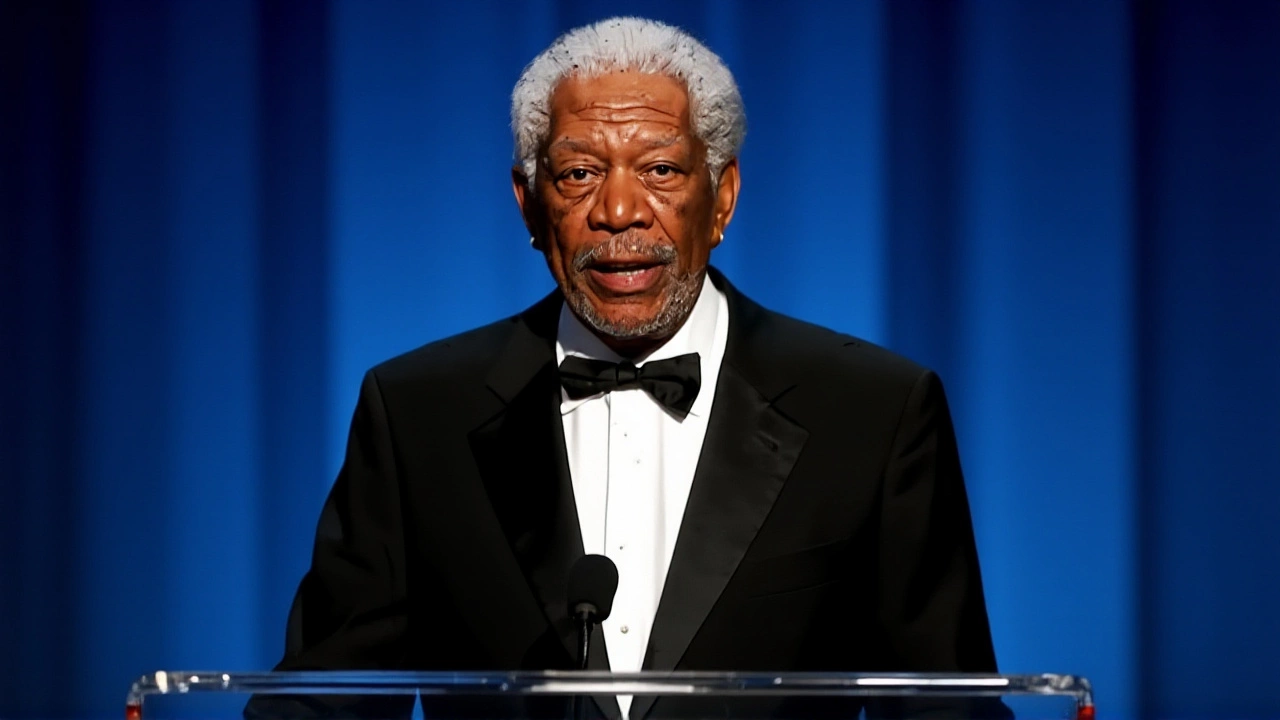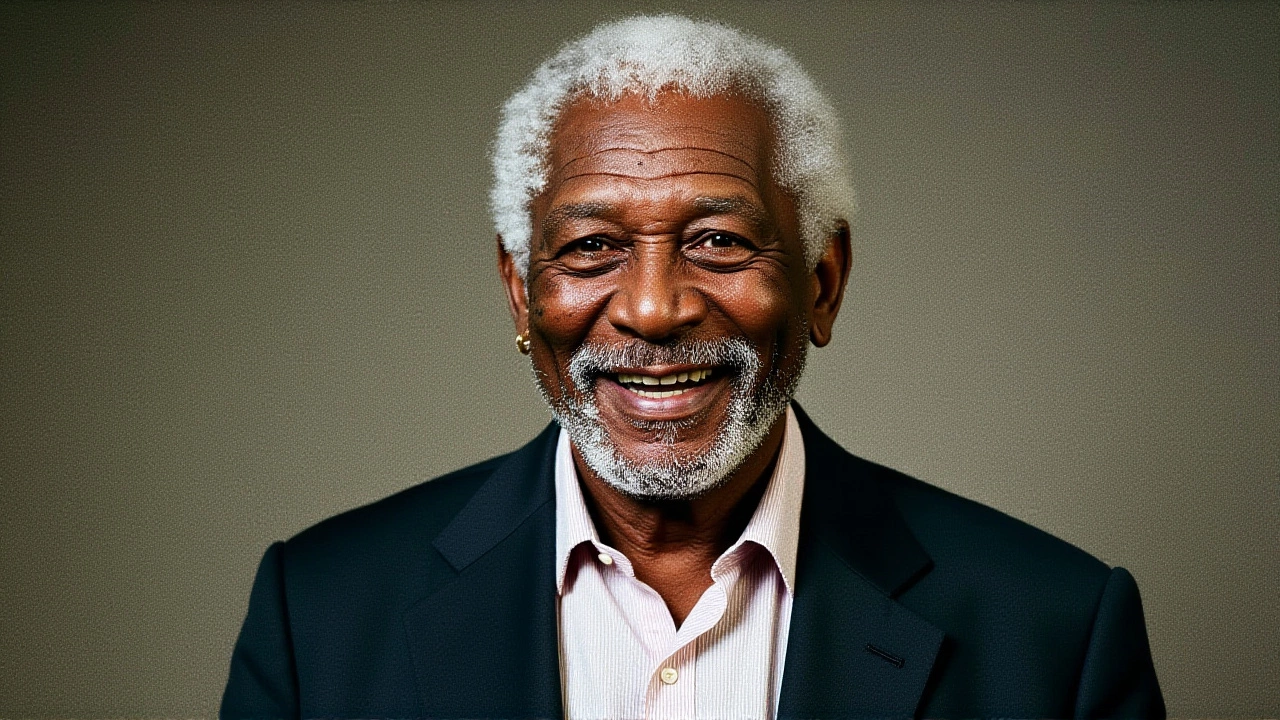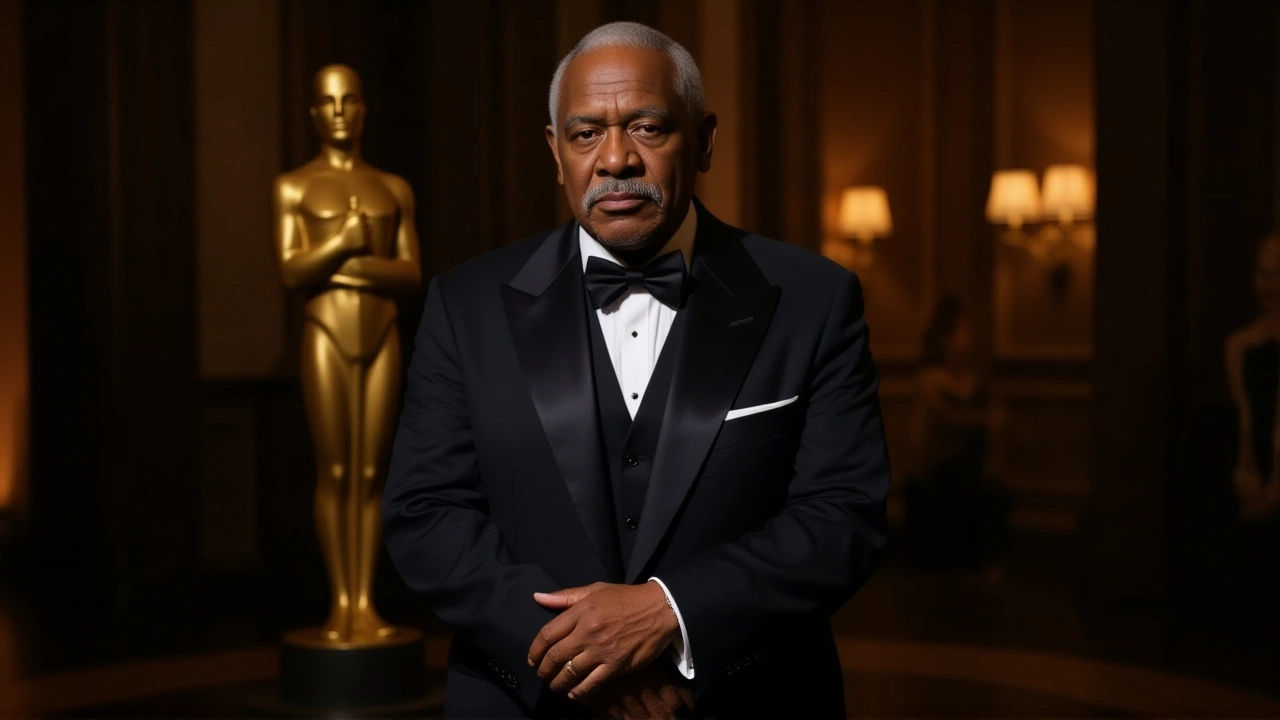
When Morgan Freeman, Academy Award‑winning actor (age 87), sat down for an interview in Los Angeles this week, he didn’t just talk about his latest projects. He singled out Jack Nicholson as the one figure he has always idolized, describing their time together on The Bucket ListUnited States as “nothing short of magical.” Freeman, who was honored by the Academy of Motion Picture Arts and Sciences in 2005, traced his admiration back to a teenage evening spent watching Nicholson’s wild‑streak performance in Five Easy Pieces. The memory, he said, shaped his understanding of fearless acting for the rest of his life.
Historical Roots of a Hollywood Friendship
In the early 1970s, a young Freeman was still trying to find his footing on stage and screen. He has recalled sitting on a cracked couch in his parents’ home, eyes glued to the television broadcast of Five Easy Pieces (1970). “I was 17, and when I saw Jack stare at that piano like he owned it, something clicked,” Freeman said. That moment, according to him, was the spark that set him on a path toward method‑driven, risk‑taking performance.
For Nicholson, the 1970s were a decade of breaking rules. From the raw vulnerability of One Flew Over the Cuckoo's Nest (1975) to the icy menace in The Shining (1980), he proved he could pivot between humor and horror without missing a beat. Freeman admired not just the roles but the actor’s willingness to “never play it safe,” a quality he would later try to emulate.
The Bucket List Collaboration: From Fan to Co‑Star
The two finally shared a set when Warner Bros. paired them for the road‑trip comedy The Bucket ListLos Angeles. Filming lasted 56 days, mostly on location at a desert ranch outside Palm Springs. Freeman recalls each morning feeling “the same awe” he felt as a teenager.
“Jack would take a line, toss it back to me, and we’d argue over the punctuation for an hour,” Freeman laughed. “He’d chew on a script until the words tasted right.” That meticulousness, Freeman noted, mirrored the dedication that first drew him to Nicholson’s work.
The movie grossed $175 million worldwide, but the numbers mattered less to Freeman than the personal milestone. “Standing next to the man who taught me to breathe onstage— that was the full‑circle moment I never imagined,” he said.
Freeman’s Ongoing Reverence for Nicholson
Even years after the cameras stopped rolling, Freeman lights up when the topic surfaces. In a recent interview, he remarked, “Jack’s ability to be both wild and completely in control is what makes him a legend in my book.” He added that watching Nicholson’s turn in The Shining still “gives me goosebumps” every time.
Freeman also pointed out that Nicholson’s career longevity—spanning five decades—offers a blueprint for staying relevant without compromising artistic integrity. “He’s never chased trends; he’s set them,” Freeman observed.

Other Hollywood Idols: Eastwood, De Niro, DiCaprio, and D’Onofrio
Freeman’s pantheon isn’t limited to Nicholson. He’s spoken publicly about his respect for Clint Eastwood, recalling how playing the “ultimate guy” in Unforgiven (1992) felt like “fulfilling a childhood dream.” He even confessed that, as a boy, he practiced with cap pistols, hoping to star in a western one day.
Robert De Niro is another figure Freeman admires. “I wanted to be a chameleon like Bob,” he said, referencing De Niro’s ability to disappear into any role. Freeman later noted that fame sometimes hinders that kind of transformation, a paradox he’s learned to balance.
Freeman also praised Leonardo DiCaprio for his “relentless work ethic,” and highlighted Vincent D’Onofrio’s breakout as Private Pyle in Full Metal Jacket (1987) as “career‑defining for the actor and a lesson in dedication.”
Why Freeman’s Testimony Matters to the Acting Community
For aspiring actors, Freeman’s reflections serve as a masterclass in mentorship through observation. The key takeaways, according to him, are:
- Study the craft of actors who “take creative risks while staying in control.”
- Seek out collaborations that push you out of your comfort zone.
- Remember that admiration can become partnership if you stay curious and humble.
Industry analysts note that such public endorsements can revive interest in an actor’s back‑catalog. Following Freeman’s comments, streams of Nicholson’s films spiked by 12 % on major platforms within a week, according to data from MusicWatch.

What’s Next for Freeman?
At 87, Freeman isn’t slowing down. He’s slated to appear in a limited‑series about civil rights leaders, produced by HBO. While the project is still under wraps, insiders say his role will echo the gravitas he displayed in Invictus (2009).
Freeman also hinted at a possible documentary exploring the “greatest acting influences” of his generation, which could feature never‑before‑seen footage of him with Nicholson and Eastwood.
Background Deep Dive: Jack Nicholson’s Legacy
Jack Nicholson, born 1937 in Neptune, New Jersey, has earned three Academy Awards and 12 nominations. His daring choices—like turning down a role in Rain Man to star in Batman (1989)—illustrate a career built on gut instinct over box‑office safety.
Film historians point out that Nicholson’s willingness to “play the villain with a twinkle in his eye” reshaped Hollywood’s portrayal of anti‑heroes. The ripple effect can be seen in modern stars who blend charm with menace, a template Freeman often cites when describing his own approach.
Frequently Asked Questions
How did Morgan Freeman first discover Jack Nicholson’s work?
Freeman was 17 when he watched Nicholson’s simmering performance in Five Easy Pieces. The raw intensity of that role sparked his lifelong fascination with fearless, risk‑taking acting.
What made the collaboration on The Bucket List special for Freeman?
Beyond the box‑office success, Freeman said the set felt “magical” because he was finally side‑by‑side with the actor who had shaped his artistic philosophy, allowing him to witness Nicholson’s meticulous script work firsthand.
Why does Freeman view Nicholson as the epitome of fearless acting?
Freeman points to Nicholson’s willingness to play wildly different characters—from the manic R.P. McMurphy to the eerie Jack Torrance—without ever compromising control, a balance he regards as the hallmark of true artistic bravery.
How have other actors like Clint Eastwood and Robert De Niro influenced Freeman?
Freeman cites Eastwood’s “ultimate guy” presence in westerns and De Niro’s chameleon‑like transformation as complementary inspirations that broadened his view of what an actor can achieve across genres.
What upcoming projects could showcase Freeman’s continued admiration for acting legends?
Freeman is attached to an HBO limited series on civil‑rights leaders and is rumored to be developing a documentary that revisits his early influences, potentially featuring archival clips of his time with Nicholson and Eastwood.

Write a comment